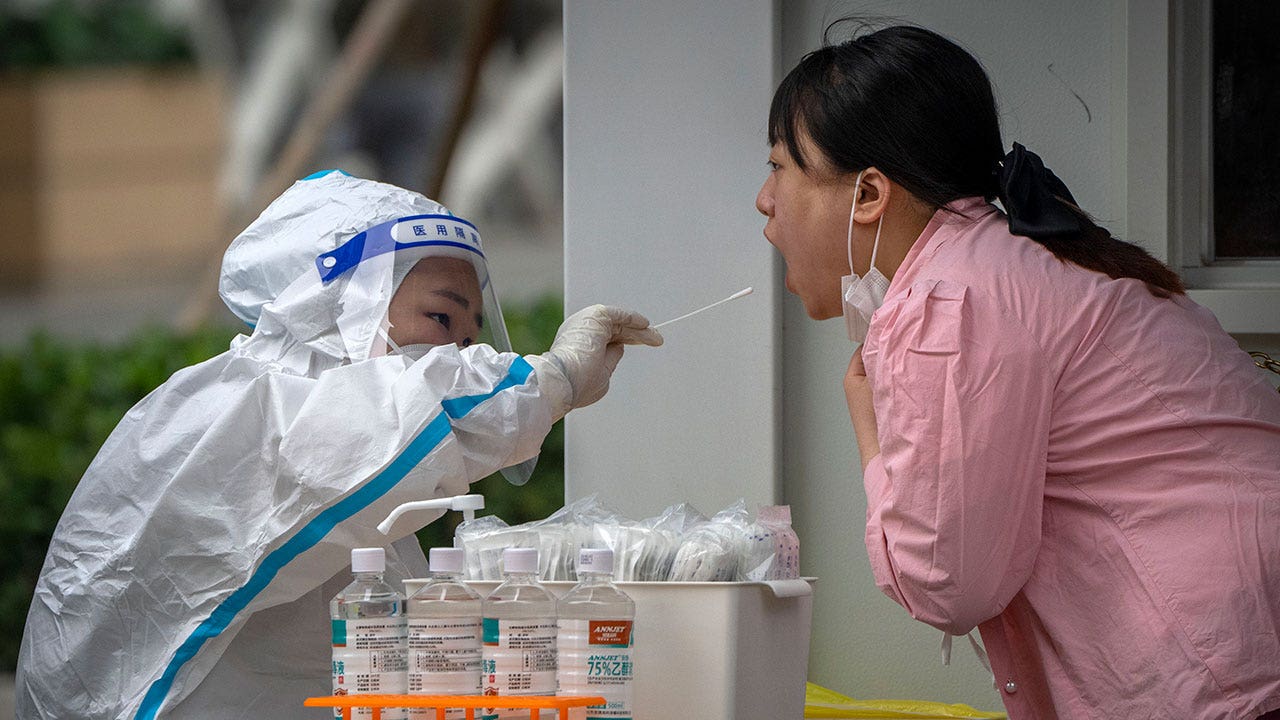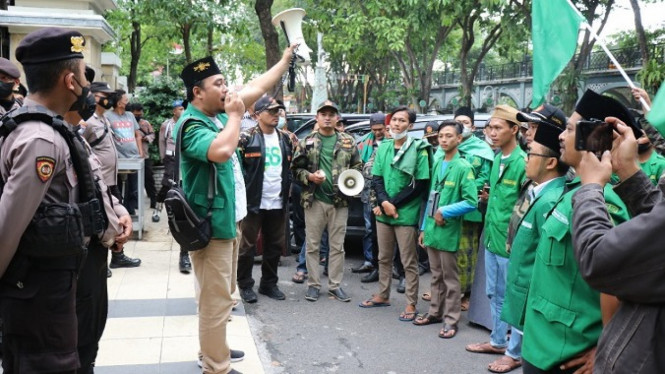NOUVEAUYou can now listen to Fox News articles!
–
Thousands of COVID-19 testing booths have appeared on sidewalks in Beijing and other Chinese cities as part of the latest twist in the country’s “zero-COVID” strategy.
Lines are forming every day, rain or shine, even where the spread of the virus has largely stopped. Some people have to go to work. Others want to go shopping. All are effectively forced to get tested by having to show a negative test result to enter office buildings, malls and other public places.
Liu Lele, who works for a live-streaming company, has no problem getting tested regularly, but said daytime opening hours don’t always fit into her schedule.
“Sometimes I get held up at work,” he said after completing a test on Thursday near Beijing’s historic Bell and Drum towers. “I would like there to be sites open 24 hours a day or only closing at 7 or 8 p.m.”
CHINA SAYS SHANGHAI IS ‘OPEN’ BUT HUNDREDS OF THOUSANDS ARE STILL CLOSED IN THEIR HOMES
Regular resident testing is becoming the new norm as the ruling Communist Party firmly sticks to a “zero-COVID” approach that is increasingly at odds with the rest of the world.
Major cities have been asked to set up testing stations within a 15-minute walk for all residents. Beijing and Shanghai alone have hosted 10,000 or more each. Many of them are closed square booths from which gloved workers reach out through openings to quickly take a throat swab from the next person in line.
Many cities, including Beijing, require a negative test result within the last three days to enter a public place or ride a bus or subway. Some did it for a week or 10 days. The tests are free, with the result reflected on the person’s smartphone health app about 12 hours later.
A worker wearing a protective suit swabs a woman’s throat for a COVID-19 test at a coronavirus testing site in Beijing, Thursday, June 9, 2022.
(AP Photo/Mark Schiefelbein)
–
–
“It’s something we should do,” said Beijing retiree Wang Shiyuan, who gets tested every three days in case he needs to go to the supermarket or take a bus. “Only when everyone obeys the requirements can we reduce the risk of transmission. »
The move follows a recent outbreak in Shanghai that spread so widely that authorities locked down the entire city for two months to end it, trapping millions and dealing a blow to the national economy.
RISE IN COVID CASES IN BEIJING TAKE OFFICIALS TO EXTEND WORK FROM HOME ORDER
China largely kept the virus at bay for a year and a half with targeted building and neighborhood shutdowns and the quarantine of those infected, but the fast-spreading omicron variant proved more difficult to stop. More than 580 people have died in Shanghai – a large number in a country that had reported only a handful of deaths after an initial deadly outbreak in Wuhan in early 2020.
Andy Chen, senior analyst at consultancy Trivium China, said the proliferation of test sites is a reaction to the failure of existing measures to control omicron in Shanghai, although officials did not explicitly say so. .
CHINA USES COVID-19 TO NEUTRAL UN HUMAN RIGHTS TRIP TO XINJIANG
Authorities have decided that early detection is necessary if they are to control omicron outbreaks without extreme measures that cause major economic disruption.
“Regular testing requirements are intended to enhance the zero-COVID strategy,” Chen said in an email response. “The end goal is to keep the virus under control while avoiding another Shanghai-style lockdown. »
A volunteer in protective gear waits for residents of a coronavirus testing center in Beijing, Thursday, June 9, 2022.
(AP Photo/Andy Wong)
–
–
Many other countries, facing populations weary of pandemic restrictions and eager to move forward, are betting that increasing vaccination rates and developing treatments for COVID-19 means they can avoid lockdowns. and other disruptive measures and live with the virus instead.
Chinese leaders have repeatedly signaled that they believe the zero-COVID approach remains the right one for China, even as they try to stimulate a flagging economy with corporate tax refunds, a easier credit and spending on infrastructure projects.
CLICK HERE TO GET THE FOX NEWS APP
Entry into the country remains restricted, with difficult-to-obtain visas and few international flights, making securing a seat expensive and difficult. Anyone who enters must quarantine in a hotel, usually for two weeks. Chinese people generally cannot leave the country except for work or study.
Most analysts expect zero-COVID policies to remain in place at least until the end of a major Communist Party congress this fall, when leader Xi Jinping is expected to secure a third five-year term. The party has touted its approach as a success as COVID-19 ravaged other countries, and it doesn’t want a major outbreak ahead of its meeting.
–


